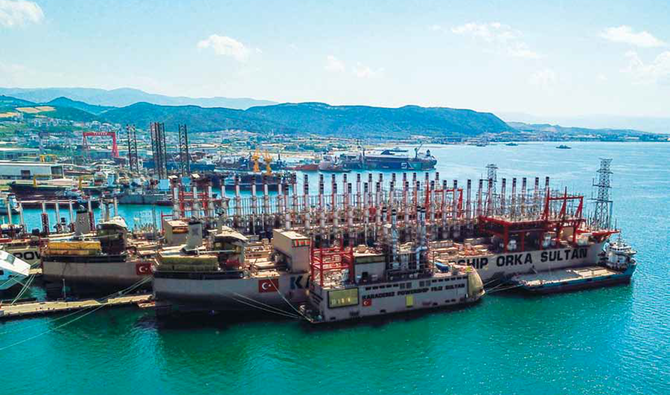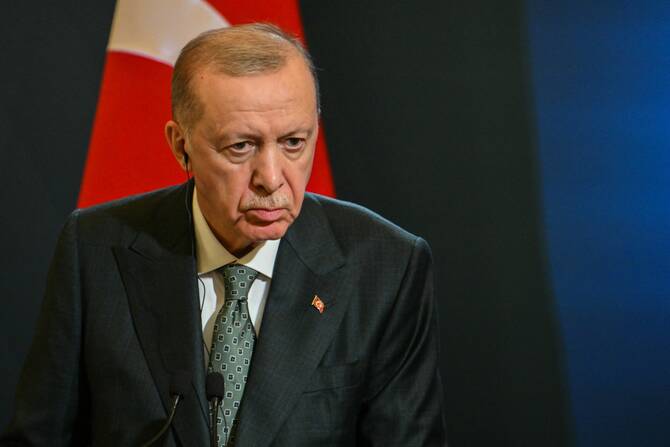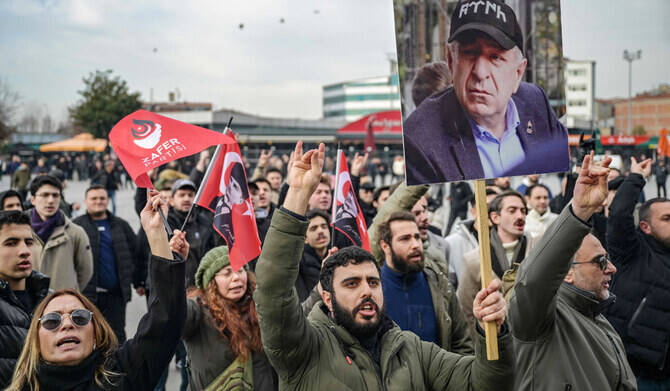ALTINOVA, Turkey: A Turkish company’s expertise in turning freighters built for carrying coal or sand into mobile power stations is proving to be an antidote to woes brought onto energy supply projects by the coronavirus.
Floating electricity plants known as powerships come into their own when conflicts or other crises make the construction of land-based power stations difficult.
The novel coronavirus pandemic is such a crisis, having forced many companies to shut down and bringing construction to a halt.
Enter Karpowership, which has been building floating plants for almost 15 years by converting old freight ships, making it a leading player in the industry with a fleet of 25 powerships.
The pandemic has created a windfall for the Turkish company by playing to the advantages of its floating power plants, especially the unbeatable delivery times: 60 days maximum to anywhere in the world.
Lockdown measures taken by several countries for months have obstructed progress of conventional power plant projects, whose construction already takes several years even in normal times.
“Credit committees were not approving credits, suppliers weren’t able to meet their timelines, (and) workers weren’t able to do constructions on site,” Zeynep Harezi, Karpowership’s chief commercial officer, told AFP.
“So the demand for our powerships naturally increased. We are now speaking to more than a dozen countries who requested powerships as soon as possible,” she added. Powerships have existed since the 1930s.
The principle is simple: A merchant vessel is converted into a floating power plant, typically fueled by diesel or liquid gas used to generate electricity.
It then travels to its destination where it connects to the local grid, supplying a steady stream of power.
Karpowership has deployed 19 such plants in 11 countries in Africa, the Middle East and Asia as well as Cuba.
The floating plants provide more than half of the electricity consumed by several West African countries, including Guinea-Bissau, The Gambia and Sierra Leone.
They are particularly suitable for countries whose capacity is insufficient to meet growing demand, or where infrastructure has been destroyed by conflict.
According to Turkish media, Karpowership is in talks about sending several powerships to war-torn Libya.
Karpowership said it was ready to deploy powerships “from this summer onwards” to supply 1,000 megawatts (MW) or “eight hours of additional electricity” per day to a country facing massive blackouts.
To meet delivery deadlines quickly, the company invests massively to build ships before they have been ordered, a calculated risk.
“There, you see a billion dollars sitting on the dock,” Harezi said, pointing to six powerships of different sizes moored in a shipyard in northwestern Turkey, pending the signing of deals.
“At the shipyard, it takes around 18 months to build a ship, but since we are doing our construction back to back, we can produce our ships in six months,” explained Deniz Yalcindag, a Karpowership engineer.
AFP






















